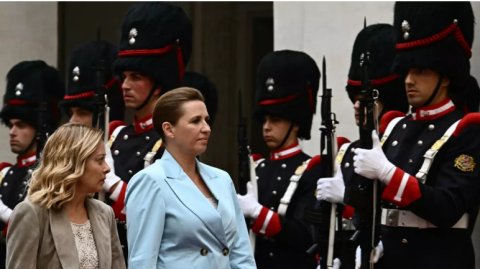Italy and EU Nations Call for Revision of Rights Convention
Italy, alongside several other European Union (EU) nations, is pushing for a reconsideration of the European Convention on Human Rights (ECHR). This call for revision comes amid ongoing debates about immigration policies and the rights of migrants within EU borders. The countries involved are advocating for changes that would allow for more stringent measures regarding immigration control and the treatment of undocumented individuals.
The Context of the Call for Revision
The call for revising the ECHR stems from a growing concern among EU member states about the increasing number of migrants arriving from various regions, including Africa and the Middle East. These nations argue that the current framework does not adequately address the challenges they face in managing immigration flows and ensuring national security. In this context, Italy’s position is particularly prominent, as it has been one of the primary entry points for migrants attempting to reach Europe.
Key Points of Contention:
Impact on Immigration Policies
The proposed revisions to the ECHR could significantly impact immigration policies across EU member states. If accepted, these changes may pave the way for stricter border control measures and potentially limit the rights of migrants seeking asylum. Countries like Italy, which have experienced substantial influxes of migrants, argue that such revisions are necessary to regain control over their borders and manage public resources effectively.
The implications of these changes could also extend to the treatment of immigrants already residing in EU countries. For example, proposals for the 287g program, which allows local law enforcement to assist in immigration enforcement, could gain traction if the revisions lead to a more permissive environment for stricter immigration enforcement policies.
Public Opinion and Political Dynamics
The political landscape surrounding immigration in Europe is complex and multifaceted. With rising populism and anti-immigrant sentiment in several EU countries, the call for revising the ECHR may resonate with voters who prioritize national security over humanitarian concerns. This shift in public opinion can influence political dynamics, leading to an increased emphasis on immigration reform news and policies that prioritize stringent border control.
However, there is also a significant counter-movement advocating for the protection of immigrant rights. Human rights organizations and various political factions are expressing concern that such revisions could undermine the fundamental principles of human rights that the ECHR was designed to uphold. The tension between these opposing viewpoints highlights the ongoing struggle to balance national interests with humanitarian obligations.
International Reactions
The international community is closely monitoring the developments surrounding Italy’s push for ECHR revisions. Many human rights advocates are voicing their apprehensions, warning that such changes could lead to a weakening of protections for vulnerable populations, including refugees and asylum seekers. The potential for increased deportations and stricter immigration enforcement measures raises questions about the future of humanitarian programs, such as humanitarian parole initiatives that aim to provide temporary relief for those in need.
In contrast, some countries outside the EU view these developments as a necessary step towards reclaiming sovereignty over immigration policies. The ongoing debate reflects broader tensions between national governance and international human rights obligations.
The Future of the European Convention on Human Rights
As discussions on revising the ECHR continue, it is essential to consider the implications for both immigration policy and human rights protections. The outcome of these debates will likely shape the future landscape of immigration in Europe and influence how nations address the challenges posed by migration.
The call for a revision of the ECHR by Italy and other EU nations highlights the complex interplay between immigration, national security, and human rights. As the situation evolves, stakeholders must remain vigilant in advocating for balanced solutions that uphold the dignity and rights of all individuals, regardless of their immigration status.
In conclusion, Italy’s initiative to reconsider the ECHR reflects broader trends in immigration policy discussions across Europe. The potential for significant changes presents both opportunities and challenges for the future of human rights protections within the EU. As nations navigate these complex issues, the focus will need to remain on finding equitable solutions that prioritize both security and humanity.










